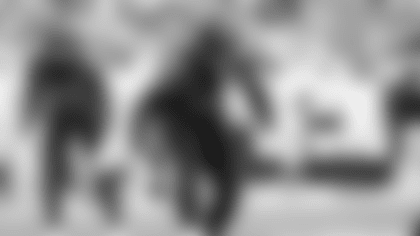The NFL Draft is set to take place, digitally, beginning on April 23, and as things stand now, the Seahawks are scheduled to pick 27th in the first round, and hold seven picks overall. Seahawks.com is taking a position-by-position look at where things currently stand on the Seahawks' roster, as well as the top prospects at each position. We'll also look at Seattle's draft history at each position under general manager John Schneider and head coach Pete Carroll.
So far we've looked at quarterback, cornerback, receiver, safety, running back, linebacker, tight end and defensive line, and today we wrap things up with a look at the offensive line.
Seattle's 2020 Draft Picks: Round 1, No. 27 overall; Round 2, No. 59 overall; Round 2, No. 64 overall; Round 3, No. 101 overall; Round 4, No. 133 overall; Round 4, No. 144 overall; Round 6, No. 214 overall.
Draft History Under Carroll & Schneider: T Russell Okung (No. 6 overall, 2010); G James Carpenter (No. 25, 2011); G John Moffitt (No. 75, 2011); G J.R. Sweezy (No. 225, 2012); G Ryan Seymour (No. 220, 2013); G Jared Smith (No. 241, 2013); T Michael Bowie (No. 242, 2013); T/G/C Justin Britt (No. 64, 2014); T Garrett Scott (No. 199, 2014); T Terry Poole (No. 130, 2015); G Mark Glowinski (No. 134, 2015); G/C Kristjan Sokoli (No. 214, 2015); G/T Germain Ifedi (No. 31, 2016); G/T Rees Odhiambo (No. 97, 2016); C Joey Hunt (No. 215, 2016); C/G Ethan Pocic (No. 58, 2017); T Justin Senior (No. 210, 2017); T Jamarco Jones (No. 168, 2018), G Phil Haynes, (No. 124, 2019).
Where The Seahawks Stand
History would suggest strongly that the Seahawks will draft at least one offensive lineman during next week's draft. In 10 drafts under Carroll and Schneider, the Seahawks have selected at least one O-lineman—or a defensive lineman they planned to convert to offense—in every draft, and have taken 19 offensive linemen in total. And that strategy is easy to understand—Schneider has noted on more than one occasion how hard it is to find linemen who can successfully make the leap from college to the NFL, and teams usually keep eight or nine on the 53-man roster each year, so volume shooting, so to speak, makes sense.
But if we're assuming, based off of past history, that the Seahawks will continue to add linemen, then those players will have their work cut out for them when it comes to making an impact. The Seahawks lost right tackle Germain Ifedi and swing tackle/jumbo tight end George Fant in free agency, but otherwise it appears just about everyone else from last year's line will be back. And some level of continuity is what the Seahawks were hoping for, Carroll said after the season.
"It is important," he said. "I hope we can keep our guys connected; I don't want to see a big change there. We have made good progress, we have really good young guys, a couple guys got banged up this year that you haven't seen a whole lot. Jordan Simmons, [Demetrius] Knox, those guys coming back, the competition will really be good. Jamarco [Jones] did well. To see Phil [Haynes] play like that too, that was really, really helpful for us going forward. I think the whole group could be a really solid group coming back. I would like to see the guys who have been playing for us to stay with us."
In addition to returning starters and all those young players Carroll mentioned, the Seahawks have also added versatile interior lineman B.J. Finney, guard Chance Warmack and tackles Cedric Ogbuehi and Brandon Shell, the latter of whom has significant starting experience at right tackle, a spot where Seattle happens to have a vacancy.
So again, there's a good chance Seattle adds a lineman or two next week, because that's something they've done in every draft for the past decade, but with so many lineman already on the roster, anyone else joining the team is going to face some serious competition, which is just how Carroll likes it.
NFL.com's Top 5 Offensive Tackles
NFL.com's rankings of the top offensive tackle prospects in the 2020 draft.
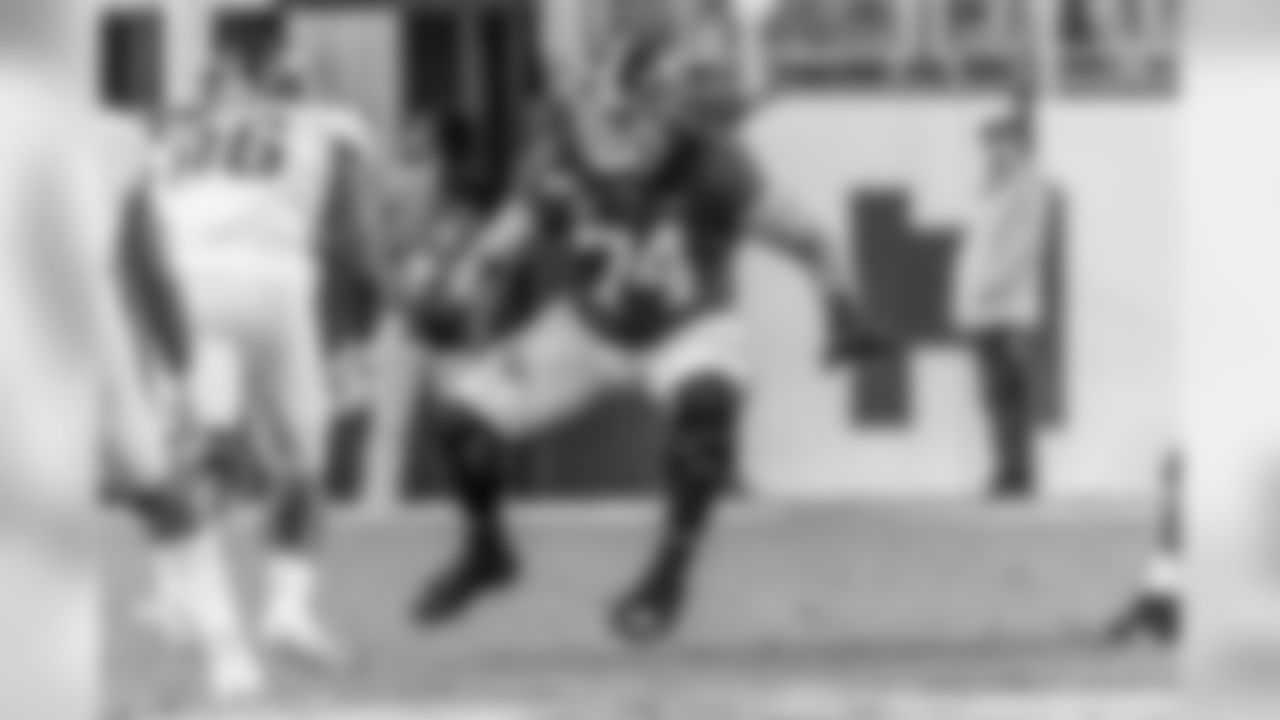
1) Jedrick Wills, Alabama
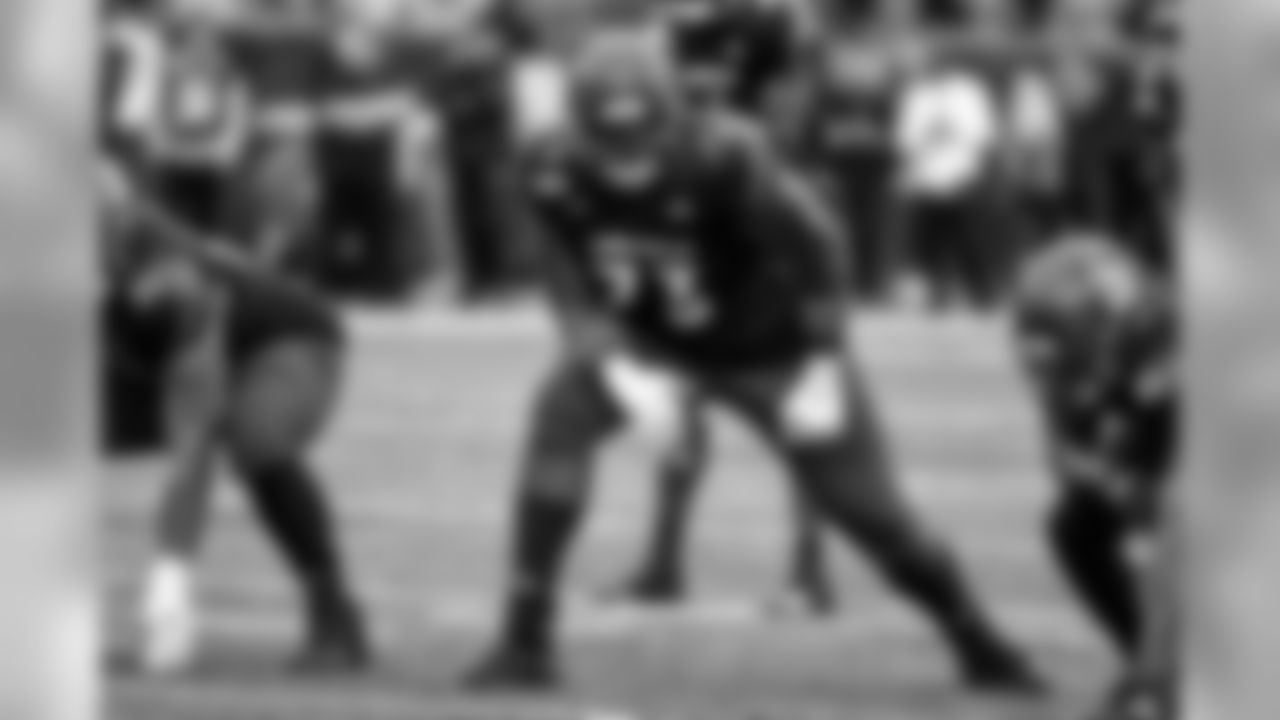
2) Mekhi Becton, Louisville
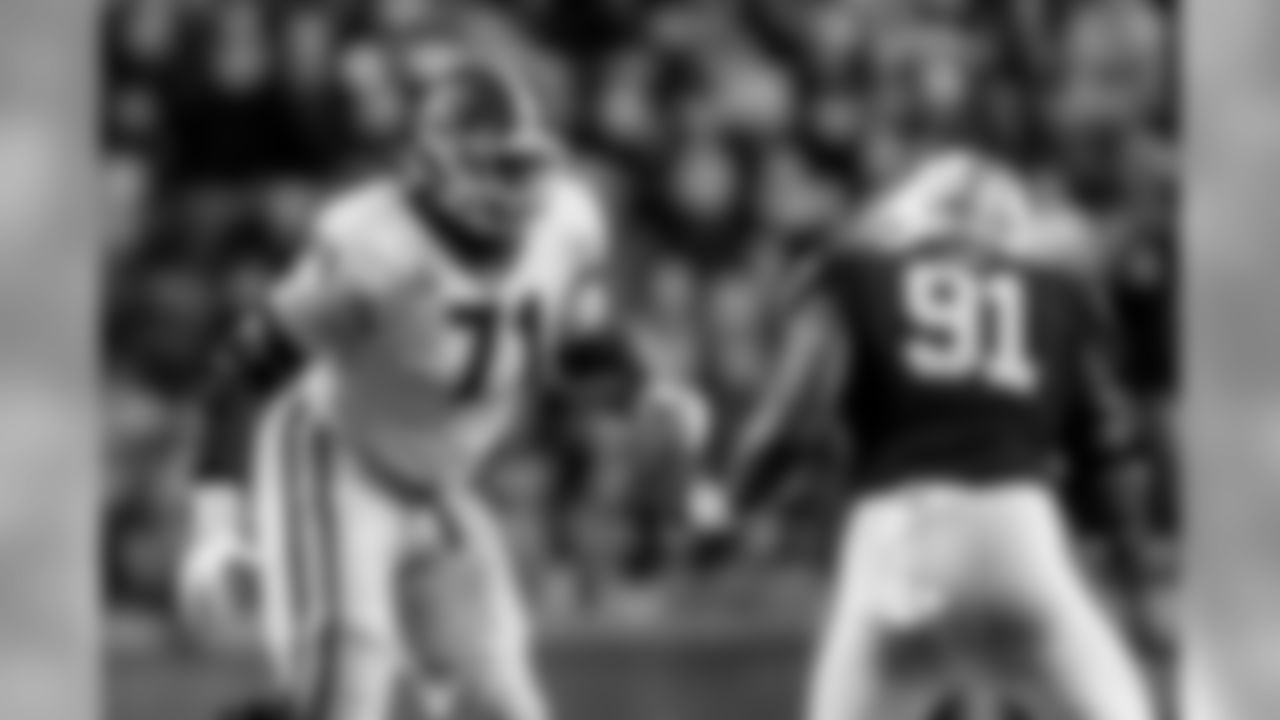
3) Andrew Thomas, Georgia
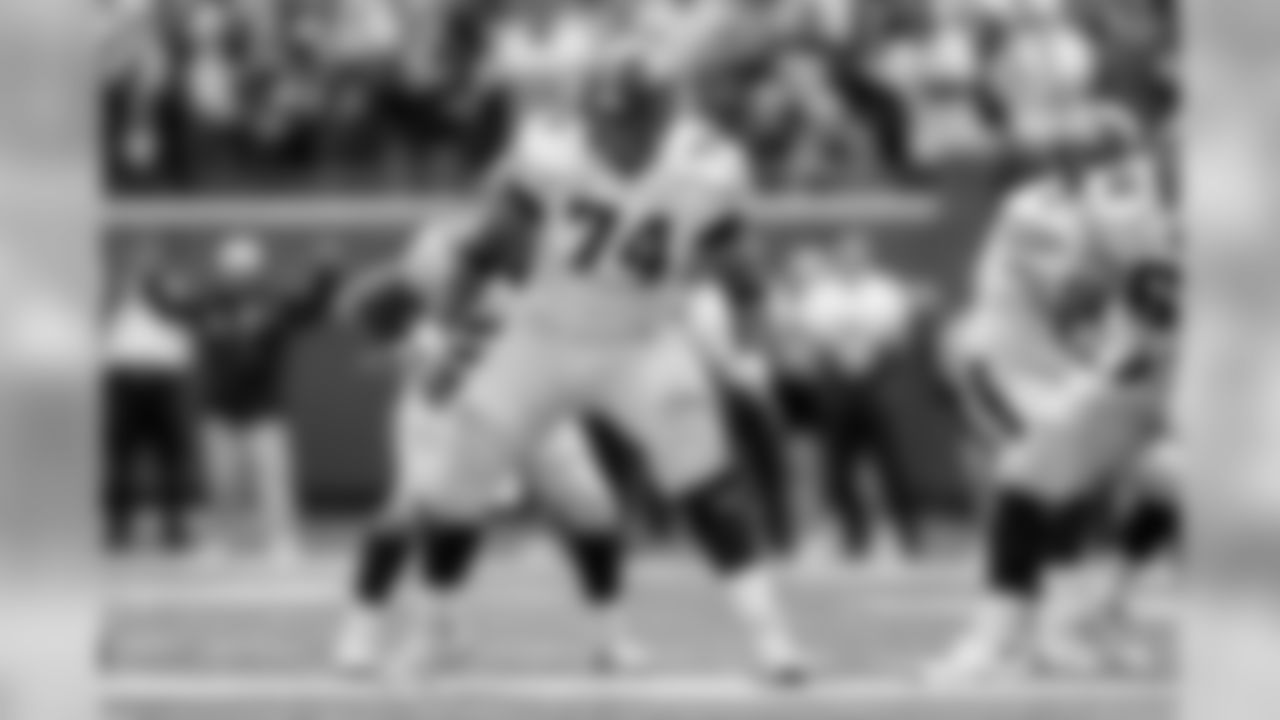
4) Tristan Wirfs, Iowa
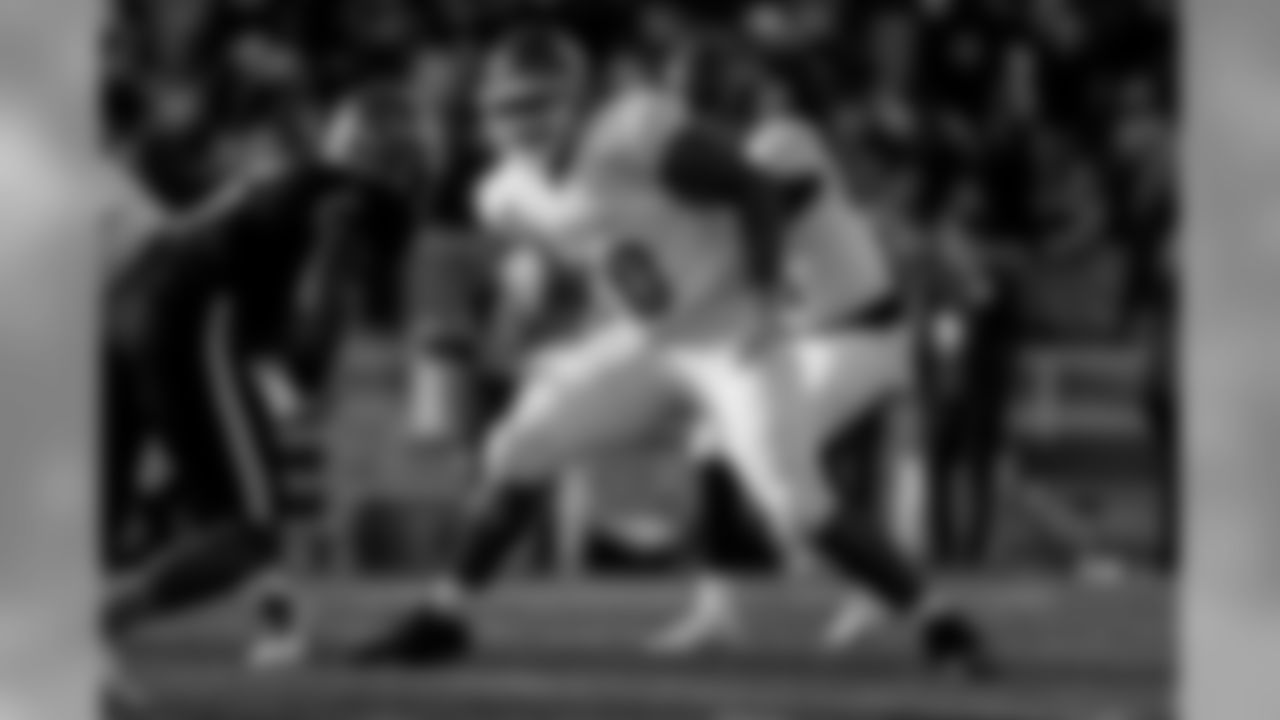
5) Josh Jones, Houston
1. Jedrick Wills, Alabama
Overview (via NFL.com): Wills falls below the height/length norm for tackles, but his quick, well-timed punches and varied approach prevent defenders from finding rush rhythms and using length against him. Agility and body control allow him to handle move-blocking duties successfully, but his leverage and elite transference of power from hips to his hands provide a big advantage as a body mover at the point of attack. His desire to control each snap occasionally leads to over-sets and lunging in an effort to stay ahead of opponents. Wills is one of the most impressive tackles in the draft; he has basketball-caliber foot quickness and the quick hands of a boxer, and all of it is wrapped in a stout, powerful package of bad intentions. His game is tailor-made for the NFL, and his range of success is good starter to All-Pro.
2. Mekhi Becton, Louisville
Overview (via NFL.com): Enormous frame complemented by surprisingly nimble feet and functional athleticism to handle either tackle spot. Becton's combination of movement and force should allow him to fit easily into all running schemes, but he needs to play with better patience in order to control and redirect all that mass into centered blocks in both run and pass. His technique and set-up are better than expected in pass pro, while his size and length allow him to recover and redirect both inside and outside rushes. With all really big prospects, weight and quickness will be concerns, but Becton's areas of concern are correctable or manageable if he's disciplined enough to prioritize them. He has the potential to be a good starter on either side, but the weight creates an obvious low-floor scenario.
3. Andrew Thomas, Georgia
Overview (via NFL.com): Three-year starter and current bellcow of a line that is a consistent front-runner for the Joe Moore Award. He's played both tackle spots but may get first crack at playing on the left side, due to the dearth of talent there. Thomas is a gritty player with above-average recovery talent to "get the job done" when his process breaks down. He's a Day 1 starter who comes in well-coached and technically savvy, but occasional leaning, lunging and inconsistent knee bend in pass pro could be isolated and attacked by pass-rush wolves looking to feast if he doesn't get those areas cleaned up.
4. Tristan Wirfs, Iowa
Overview (via NFL.com): Right tackle with elite body type and freaky testing potential who might fall victim to elevated expectations based upon traits and Iowa pedigree. He has tremendous core strength and moves smoothly, over-sets and isn't the explosive drive-blocker former Iowa star tackle Brandon Scherff was. Wirfs has tools to handle gap-blocking duties while thriving in outside zone. If Wirfs can learn to play inside out and add a more effective jump-set into his repertoire, he could take a big step forward. Consistency of play could take some time, but he has the ability to become a good starter at either right tackle or guard.
5. Josh Jones, Houston
Overview (via NFL.com): Early tape would suggest that Jones is a raw, developmental project in need of substantial technique work, but tape study later in the season suggests a level of improvement that creates additional intrigue for the long, athletic left tackle prospect. To be clear, he needs plenty of work with his pass sets and footwork, but most of his issues appear to be coachable. He's a good fit for a move-oriented rushing attack and has the traits and talent to become a future starter if he continues to develop with coaching.
NFL.com's Top 5 Interior Offensive Lineman
NFL.com's rankings of the top interior offensive lineman prospects in the 2020 draft.
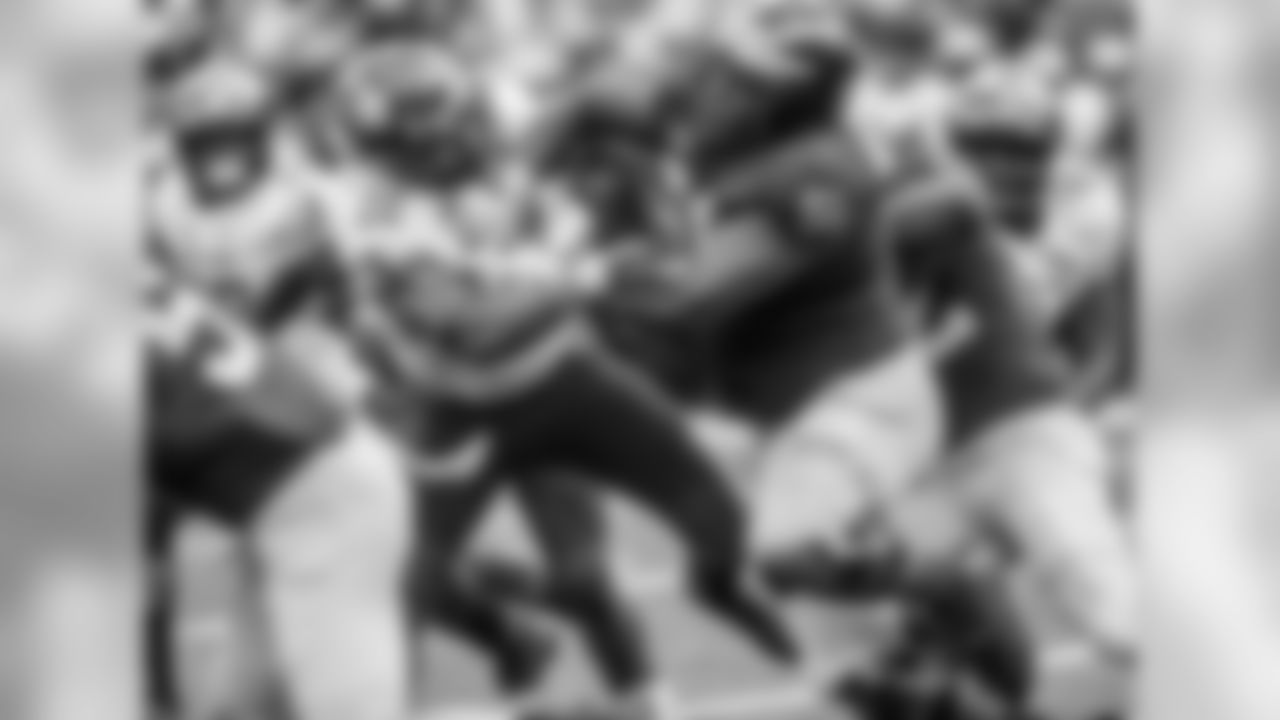
1) Cesar Ruiz, Michigan
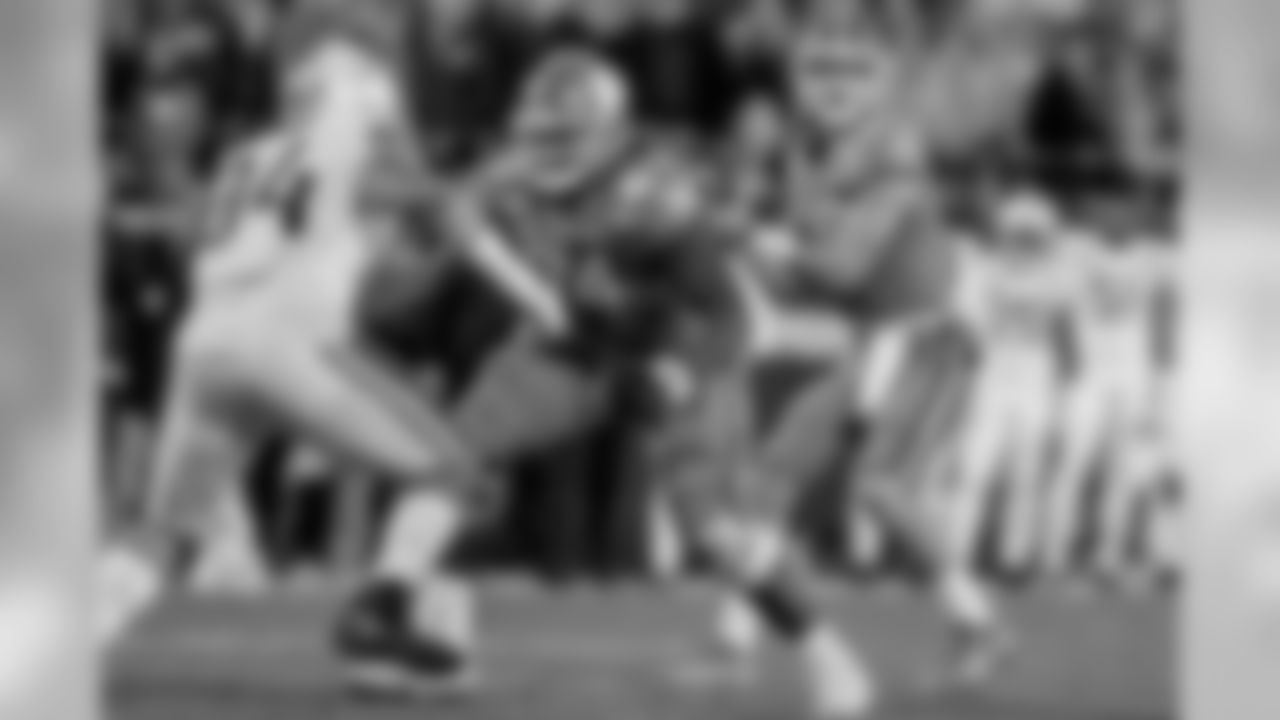
2) John Simpson, Clemson
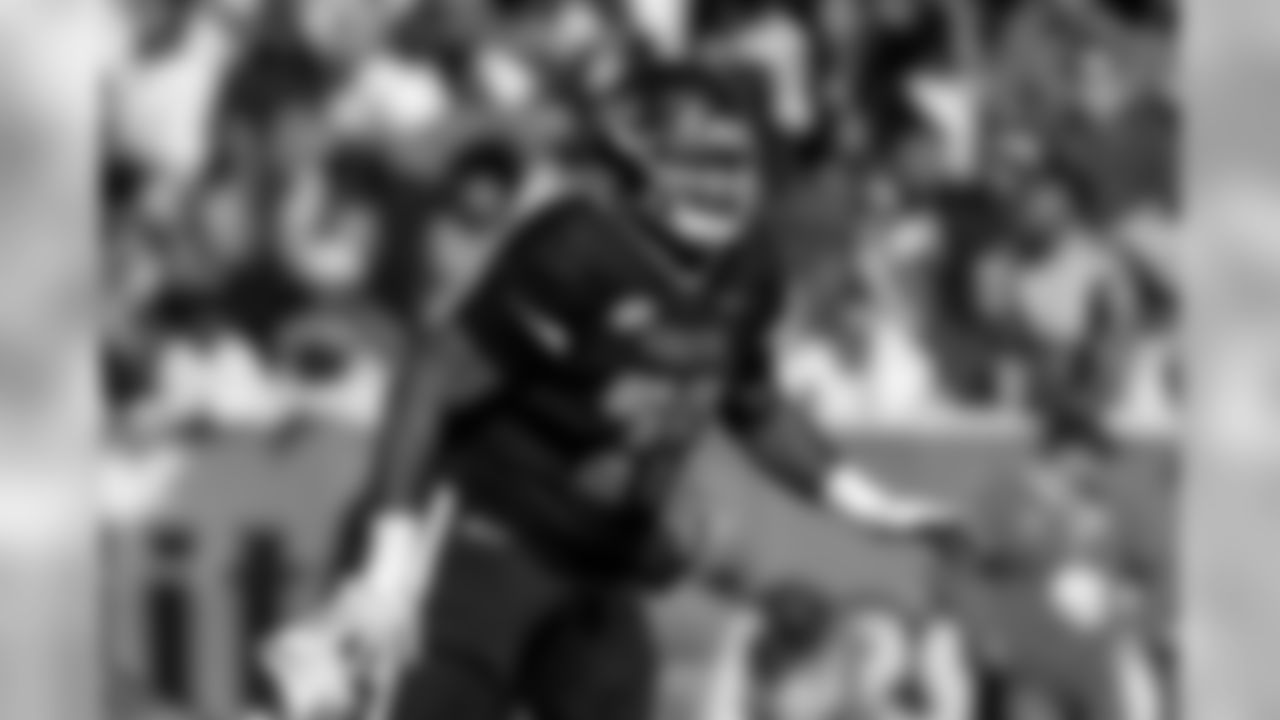
3) Tyre Philllips, Mississippi State
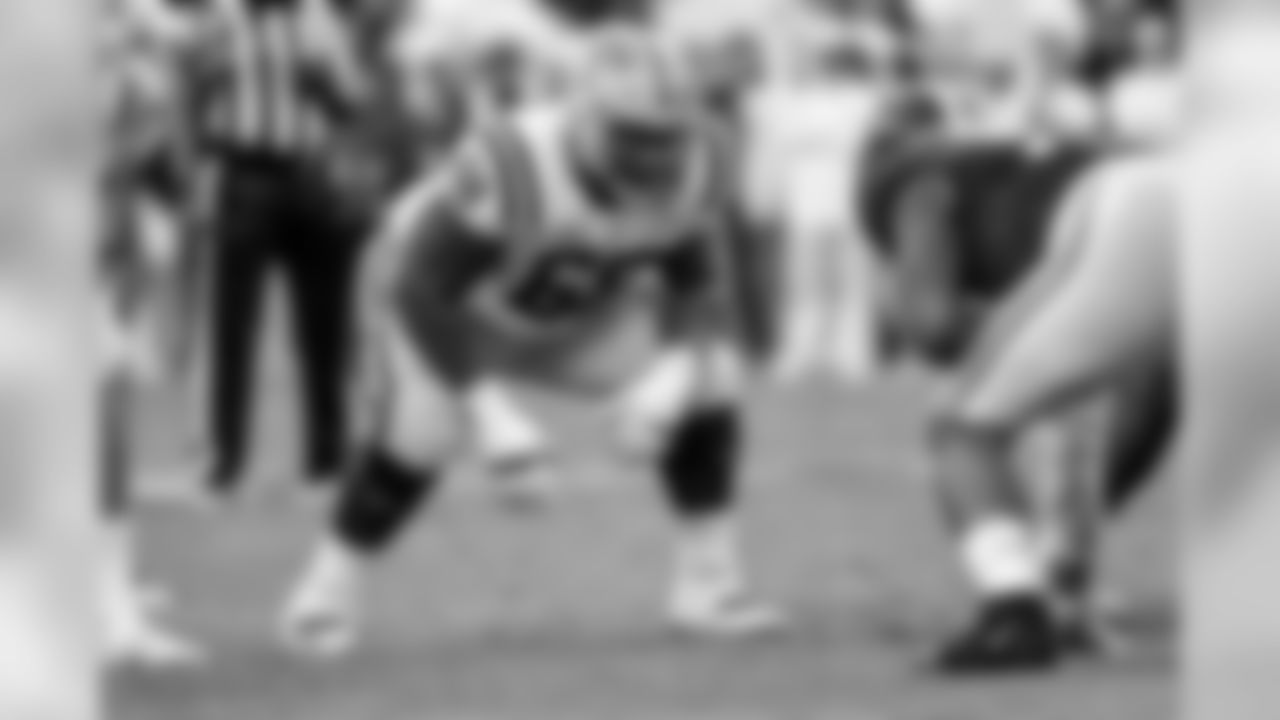
4) Damien Lewis, LSU
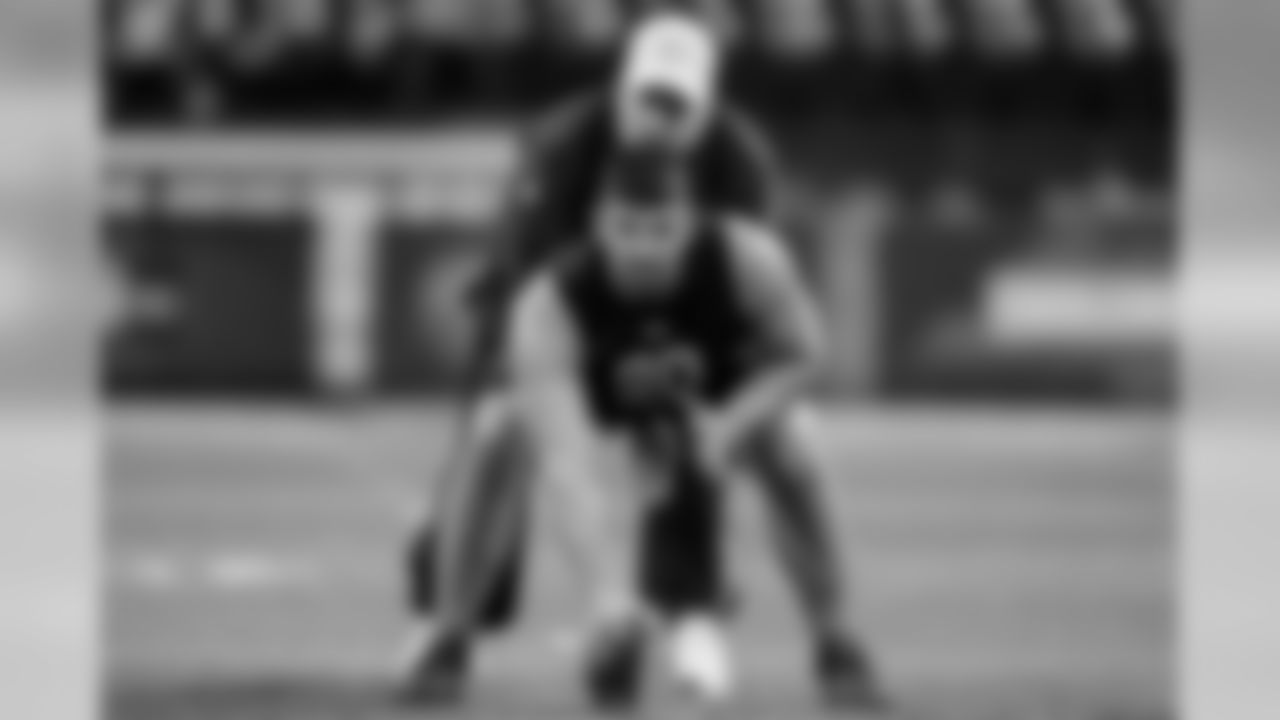
5) Matt Hennessy, Temple
1. Cesar Ruiz, Michigan
Overview (via NFL.com): Athletic and tenacious with the combination of skills and technique to fit into a variety of blocking schemes on the next level. Ruiz wins early with initial quickness and fast hands into first contact. He works to convert early advantages into wins. He's consistent in securing down-blocks and has the athletic traits to become a second-level factor. He'll give some ground to power rushers and needs help against wide-bodies, but the tape checks out. Ruiz has early starting potential and should develop into a good pro with guard/center flexibility.
2. John Simpson, Clemson
Overview (via NFL.com): Broad, well-built snowplow of a guard with the traits and power to turn a crease into a full-fledged running lane. Teams looking to add physicality up front will covet Simpson, but keep in mind he was plenty effective with scoop blocks, pulls, second-level climbs and even screen blocking, which shows the big man can move. Tardiness coming out of his stance and issues changing direction in pass protection are concerns that may not be easily fixed and could lead to matchup-based inconsistencies. However, he plays with good technique and has the tools to become an early starter and a good NFL guard.
3. Tyre Philllips, Mississippi State
Overview (via NFL.com): Big, bruising body mover with serious knock-back power to clear the debris from the gaps in the run game. Phillips has flown under the radar, but his tape is filled with fits of strength at the point of attack. His wide frame includes a wide power zone that prevents his edges from becoming leaky. He fits into power, gap scheme and inside zone as a run blocker, but outside zone is asking too much. He has a lack of functional range in pass sets that might require more tight end help than play-callers would care to give. Interior protection duties should come naturally and he has early starting potential with an above-average ceiling for a power-driven offense.
4. Damien Lewis, LSU
Overview (via NFL.com): The run-blocking tape shows a forklift dressed as a right guard with the power and leverage to move some of the best interior defenders in the conference. The pass-blocking tape shows a heavy-footed guard who lacks length and lateral quickness to hold up if asked to block on an island. Lewis needs to play for a team heavy into gap and inside-zone concepts. He can hold his own against bull rushers but will struggle to move and recover against moving pieces in pass protection. He's a one-position prospect who lacks height/length but he's a plus run blocker who should outperform his draft slotting.
5. Matt Hennessy, Temple
Overview (via NFL.com): Three-year starter who uses hand placement, leverage and athletic ability to make up for his lack of mass and length. He's patient to center blocks and runs his feet to lock in and begin sustaining. He has the lateral quickness and body control to reach, pull and stay connected to blocks on the move. He has issues with timing blocks up to linebackers, but that should be correctable. Below-average physical traits could limit his suitors, but scheme fits will like the movement and intangibles he brings to the table. He has early backup, eventual starter potential.








